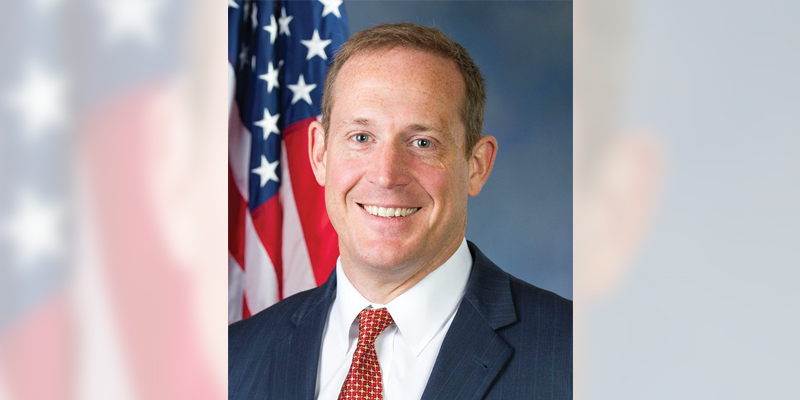by 13th District Congressman Ted Budd
In 2012, President Barack Obama went outside the law and granted around 800,000 illegal immigrants, ages 15 through 31, amnesty. This amnesty is called the Deferred Action for Childhood Arrivals – DACA for short.
In September of last year, President Donald Trump cancelled DACA and set a March deadline for Congress to come up with a solution. Given that this topic’s been in the news over the past few weeks, many at home have asked for my views on the issue, and I thought I’d relay those here.
When I look at an issue, I tend to start from a constitutional basis and work my way on from there. With regard to immigration, the Constitution is as clear as it gets. Congress is granted the exclusive power to create a “uniform rule of naturalization” in Article I, Section 8, Clause 4. President Obama said so himself – 22 times.
When it became clear that Congress would not pass his amnesty, he ultimately changed his view on his ability to do so through executive power. That’s not the way the system is supposed to work.
To quote President Obama, “I am the champion-in-chief of comprehensive immigration reform. But what I’ve said in the past remains true, which is until Congress passes a new law, then I am constrained in terms of what I am able to do.” I agree with President Obama here – DACA does not meet the spirit or the letter of the Constitution.
Because of that decision, I find myself in between a rock and a hard place. I don’t have much desire to send home 800,000 people who believed they had gotten what is essentially citizenship, even if the original decision was unlawful. On the other hand, if those 800,000 people are granted some form of legal status, studies show they’ll typically bring in a little over 3.45 relatives apiece. That amounts to roughly another 2 million to 3 million immigrants with no guarantee that we won’t be having exactly the same debate over a similar population in a few years.
This process of bringing in waves of relatives who in turn bring in their relatives is called “chain migration,” and it’s a major problem with amnesties like DACA. If people can come here illegally, get amnesty, and then ultimately sponsor their relatives who can sponsor their relatives for US citizenship, we’re offering people a massive incentive to break our immigration laws.
Ultimately there’s a pretty clear compromise in this debate that I think could get many of those concerned about border security to support the final bill: allow the DACA folks to stay in exchange for tough new immigration laws that would ensure we would never be in this position again.
I want to see mandatory e-verify to ensure that businesses are not hiring illegal immigrants. I want to see a crackdown on sanctuary cities that refuse to abide by federal immigration laws. We need to end the diversity visa lottery, the program that allowed an ISIS-inspired truck attacker to kill eight Americans in New York City. We have to address the problem I talked about before, chain migration. And yes, we need to build President Trump’s border wall.
Then, and only then, can we allow DACA recipients to stay.
I’ve been genuinely impressed with the passion of those who have argued for DACA recipients. There have been protests in the halls of Congress, I’ve had meetings with those who have benefited from DACA, and I’ve watched the fierce debate in the media. It’s brought to my mind a question that I think is reasonable to ask those who argue for DACA – if it’s so important, isn’t it worth additional border security measures? If taking amnesty away from this group of illegal immigrants would be so inhumane, then why not support laws that would get myself and the vast majority of my Republican colleagues on board?
I’m ready to support a deal. What I’m not ready to do is support yet another attempt at amnesty, and ensure that the next guy in my shoes will have to make the same decision I am now. I want the laws enforced, and I want real border security, period. Until then, DACA should stay cancelled.

